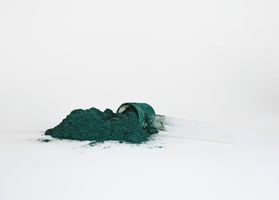We often get asked what is the best advice for pre, and post, workout nutrition. It doesn't have to...
SHOULD I EAT BEFORE OR AFTER MY WORKOUT?
A question we get time and time again is: ‘When should I be eating? Before or after my workout?’
Some of us have been told fasted exercise (not eating anything before you workout) is best for fat loss.
Other have been told fasted exercise is an absolute no go for muscle gain.
Truth be told, in the case of the general population exercises i.e. you, me and Bob from down the road (rather than elite athletes), there is no right or wrong time to eat, scientifically speaking.
The simple answer to that question is, have something that is going to make you feel satiated and energised before a workout, whatever that may be.
Exercise and nutrition come hand in hand when we are considering fat loss, muscle gain or a combination of the two, known as body recomposition.
Similar to how everyone will have a unique metabolic rate and calorie target, the timings of your meals will loosely be based on what fits in with your lifestyle and preferences.
There is some research to suggest certain timings might be better than others so we will look into those a little more, but do not panic if what is suggested does not work for you.
The main things to consider are:
-
Are you eating the right amount for your goal?
-
Are you hitting your macro targets?
-
Are you feeling fuelled and energised for your workout?
-
Are you sleeping well?
-
Are you enjoying your meals?
Muscle Protein Synthesis
Do you find yourself getting towards the end of the day and realise you’ve got 100g of protein left to get into your food?
Or have you been smashing a high protein meal post-workout because that is what you have been told is best for muscle growth and recovery?
Or are you someone who always hears how ‘protein is king’ but doesn’t really know why?
Hopefully, this will help you have a better understanding.
Protein synthesis is the process of building new protein structures and occurs within all organs in the body.
Muscle protein synthesis refers specifically to the generation of new muscle mass and how the protein we ingest through our diet is used within this process.
The most important factor with protein consumption is making sure you are getting a sufficient amount for you! On average, this is 1.5g-2.2g of protein per KG of body weight. So if you weigh 70kg, your goal is likely to be between 105-154g per day.
Following that, the timings of your protein intake does play an important role in protein synthesis.
Our bodies do not have a mechanism in which they can store protein. However, protein turnover (the process of replacing old proteins as they get broken down) is constantly occurring.
This means that in order for our bodies to gain the maximum benefits of a high protein diet, we should consider spreading protein intake out throughout the day.
This then enables us to stimulate the anabolic response of protein synthesis better and replace old proteins with new ones throughout the day, helping the body to create new muscle tissue.
There is something known as the ‘anabolic threshold’. This refers to how much protein is needed to be consumed to successfully stimulate this anabolic response.
The threshold is approximately 0.3-0.5grams of protein per KG of body weight.
Protein Synthesis and Eating Times:
Numbers represent protein Intake (G/KG of BW)
So it is best to just eat as much protein as you can with every meal?
Simply put, no.
There is an upper limit when it comes to anabolism.
Consuming more protein does not always equal more muscle protein synthesis.
This is why having a huge amount of protein in one meal isn’t the most effective way to utilise your protein intake for muscle growth.
This doesn’t mean any additional protein over the threshold is a total waste and poofs into thin air.
It is still utilised by the body, just not for the process of muscle protein synthesis.
So spreading your protein intake out evenly throughout the day might take a little preparation to begin with as you learn how to do this to fit your diet/lifestyle, but it has its rewards in relation to maintaining and gaining lean muscle mass.
Should I be eating protein before or after a workout?
As protein plays an important role in repairing and building muscles, it is often thought you have to get protein in immediately after your workout.
Whilst this holds some value, research suggests having something high in protein before or after a workout is effective in the muscle repairing and building process.
For most, a window of 1-2 hours pre-workout is a good time to have something to eat without it impacting their session (e.g. feeling sick), however, this is totally individual so find the appropriate window that works for you.
Opt for something high in carbs and protein to give you energy.
Post-workout is a little more contradictory when looking at the research.
Several papers and researches make reference to an ‘anabolic window of opportunity’.
This is suggesting there is a limited time frame after training to optimise muscular adaptations.
However, the importance and to some extent the existence of this ‘window’ can vary from person to person, based on a number of factors.
A large number of studies around this topic have looked at individuals’ exercises in a fasted state. In this instance, getting nutrient-dense foods, specifically high carb and protein foods post-workout does have some importance.
If you think about that logically, it makes sense. You exercise without eating anything since before you slept and therefore glycogen levels are depleted and need restoring through food.
This logic is also applicable if you are training after work. Let’s say you haven’t eaten anything since lunch which might be 4-5 hours prior to your workout.
Depending on what you have eaten pre-exercise, it might serve as both pre and post-workout fuel and have the desired effect on protein synthesis.
Our Recommendation
In our experience, most people benefit from eating something before a session so they can maximise performance but if that really does not work for you, then prioritise a good, nutrient-dense meal/snack post-workout instead!
In conclusion, find what works best for you!
Looking for support with your training and nutrition goals? Click here to chat with a member of our team.



.jpeg?height=200&name=image-asset%20(1).jpeg)
